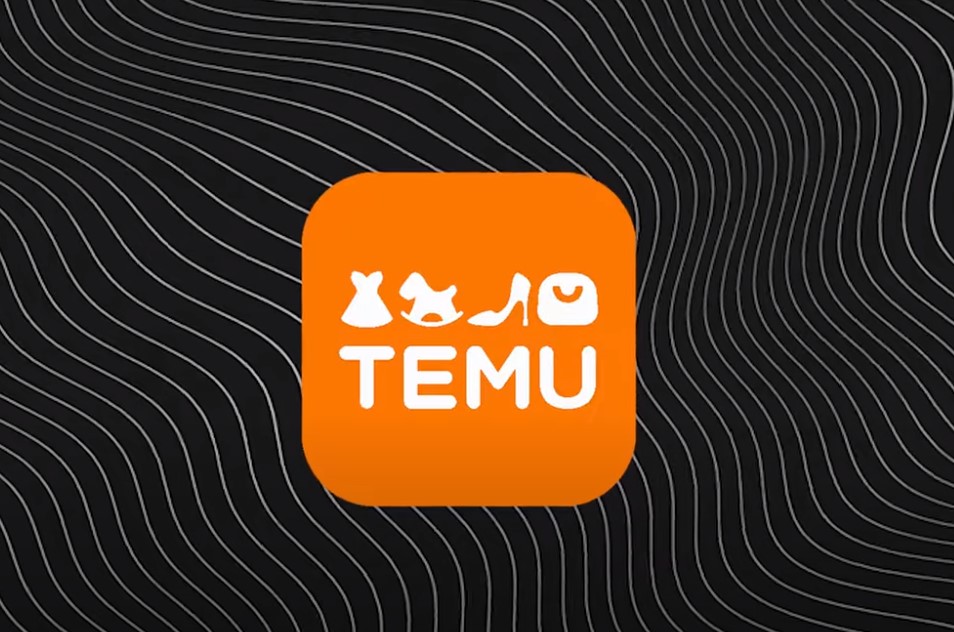Temu has emerged as a significant player in the e-commerce arena. Launched in 2022, it mirrors Amazon’s model, allowing various vendors to offer an extensive range of products. But unlike other platforms, Temu is backed by PDD Holdings, a Chinese corporation, yet claims its operations are based in Boston, USA. This blend of Eastern backing and Western operation raises intriguing questions about its global strategy and market positioning. The main is is about whether Temu is Legit and should buyers and sellers use it. Key Takeaways Should You Use Temu? While there are some concerns, this platform is completely safe, and partnerships with well-known brands is the best proof. How it Compare to Other Platforms? There are details that are quite different, such as Hybrid Approach for Marketing, but overall, sellers can positions themselves in the same way as on other well-known websites. What are the main pros and cons? The main advantage for buyers is the wide range of affordable products, while for sellers, the benefit is the worldwide customer base. When it comes to downsides, buyers could face issues with product quality and shipping time, while clients should pay attention to commissions and fees. Is It a Reliable Platform? When evaluating the reliability of Temu, several factors come into play, including product authenticity, customer service, data security, and ethical practices. Given its recent emergence in the e-commerce market, it is essential to scrutinize these aspects to understand the platform’s trustworthiness. Product Authenticity One of the primary concerns customers have when shopping online is whether the products they purchase are genuine. Temu, like many other e-commerce platforms, hosts a vast array of products from numerous vendors. The presence of recognized brands like Xiaomi and Lenovo lends some credibility. However, the authenticity of other tech products not belonging to these well-known brands is less certain. The absence of a rigorous verification process for each product listed raises questions about the overall authenticity of its inventory. This uncertainty can be a red flag for discerning shoppers, especially when considering high-value purchases. Customer Service and Protection Measures A reliable platform is often judged by the robustness of its customer service and the protection it offers to its consumers. Temu’s Purchase Protection Program, which promises refunds for items that do not meet customer expectations, is a step in the right direction. However, the effectiveness of this program in real-world scenarios is yet to be thoroughly tested by the consumer base at large. Anecdotal reports from customers about their experiences with returns and refunds will play a significant role in shaping the perception of Temu’s reliability in this regard. Data Security In the digital age, data security is paramount. Temu’s connection to PDD Holdings, a company with a controversial history regarding data privacy, does raise concerns. While the platform uses standard security measures like HTTPS and encryption, the effectiveness of these measures, given the parent company’s history, is a matter of concern. For a platform to be deemed reliable, it must not only protect user data but also be transparent about how this data is used. Ethical Practices The ethical implications of Temu’s operations, particularly regarding its manufacturing processes and environmental impact, are also crucial. Consumers are increasingly looking to support businesses that are not only economically viable but also socially responsible. The lack of clarity about Temu’s supply chain practices and its impact on the environment can affect its reputation as a reliable platform. Comparison to Other Platforms To provide a fresh perspective, we will explore unique aspects that set Temu apart from other e-commerce platforms like Amazon, Shein, Wish, and AliExpress. This comparison will focus on distinctive features such as niche product offerings, user interface and experience, marketing strategies, customer demographics, and innovation in service. Niche Product Offerings Each platform has a unique set of products that cater to specific market segments. Amazon offers a broad range of everyday items and premium products. Shein is renowned for its trendy fashion items. Wish is known for quirky, offbeat products, while AliExpress is a hub for a wide variety of items, often at lower prices. Temu distinguishes itself with an array of products that are both economical and diverse, attempting to blend the general approach of Amazon with the cost-effectiveness of platforms like Wish. User Interface and Experience The ease of navigation and the overall shopping experience play a crucial role in attracting and retaining customers. Amazon leads with a user-friendly interface and personalized recommendations. Shein’s interface is highly tailored to fashion shoppers, while Wish offers a more gamified shopping experience. AliExpress provides a straightforward, no-frills shopping experience. Temu, as a newer platform, incorporates modern design elements and easy navigation, aiming to provide a seamless shopping experience. Marketing Strategies Each platform employs unique marketing tactics. Amazon uses a combination of sophisticated algorithms and vast advertising. Shein has successfully leveraged social media influencers. Wish uses aggressive pricing and advertising strategies to attract customers. AliExpress relies on big sale events and partnerships. Temu, entering the market later, has the advantage of learning from these strategies, potentially adopting a hybrid approach to reach a broad audience. Customer Demographics The target audience for each platform varies. Amazon appeals to a broad demographic, while Shein targets younger fashion-conscious consumers. Wish attracts bargain hunters and those looking for unusual items. AliExpress is popular among a wide range of shoppers, particularly those looking for affordable alternatives. Temu is still in the process of establishing its core demographic but seems to be targeting cost-conscious consumers who value a diverse product range. Innovation in Service Innovation is key in the e-commerce industry. Amazon leads with its Prime service and extensive logistics network. Shein’s fast-fashion model is a game-changer in apparel retail. Wish and AliExpress have streamlined cross-border transactions. Temu has the opportunity to innovate in areas such as logistics, customer service, and personalized shopping experiences. Platform Niche Products User Interface Marketing Strategy Target Demographics Innovation Amazon Everyday and Premium User-Friendly Algorithms & Advertising Broad Prime Service, Logistics Shein Fashion Items Fashion-Oriented Social Media Influencers Young, Fashion-Conscious Fast-Fashion Retail Wish Quirky Products Gamified Aggressive Pricing Bargain Hunters Cross-Border Transactions AliExpress Variety at Low Prices Straightforward Sale Events, Partnerships Value Shoppers Streamlined Transactions Temu Economical & Diverse Modern & Seamless Hybrid Approach Cost-Conscious Potential in Logistics & Services Main Pros and Cons When evaluating an e-commerce platform like Temu, it’s important to consider the experience from both the viewpoint of a client (the seller) and a buyer. Each group has distinct priorities and concerns, and understanding these can provide a comprehensive view of the platform’s strengths and weaknesses. For Buyers Pros : :
Affordability: Temu offers an extensive range of products at highly competitive prices. For budget-conscious buyers, this is a significant draw. The ability to access a variety of items, from everyday necessities to unique finds, without straining the wallet is a major advantage. Diverse Product Range: The platform’s wide array of products ensures that buyers have access to a multitude of options. Whether it’s fashion, electronics, or home goods, Temu provides an expansive selection, making it a one-stop shop for many consumers. User-Friendly Interface: Temu’s modern and intuitive interface enhances the shopping experience. The ease of navigation and simplified process of browsing and purchasing products is a strong point, especially for those who value a hassle-free shopping experience. Innovative Features: As a new entrant in the market, Temu is positioned to incorporate innovative features, including personalized recommendations and advanced search filters, which can enhance the buyer’s shopping experience. Cons : :
Questionable Product Quality: The affordability of products on Temu raises concerns about their quality. Buyers might be wary of purchasing certain items, especially electronics, due to the risk of receiving subpar or counterfeit products. Data Security Concerns: Given the parent company’s background and the general apprehension about data privacy with Chinese tech companies, buyers may be cautious about the safety of their personal information. Variable Shipping Times: While Temu offers free shipping, the delivery times can be inconsistent, ranging from a week to several weeks. This uncertainty can be a significant downside for buyers who need items promptly. Limited Customer Reviews: As a newer platform, there may be a lack of extensive customer reviews for many products. This can make it difficult for buyers to gauge the reliability and quality of items before purchasing. For Clients (Sellers): Pros : :
Large Customer Base: By listing on Temu, sellers have the opportunity to reach a broad and diverse customer base. This exposure can be particularly beneficial for new businesses or those looking to expand their market reach. Low Barrier to Entry: Temu’s platform is accessible to a wide range of sellers, including smaller vendors. This inclusivity can be a major advantage for new or small-scale sellers looking to enter the e-commerce market. Competitive Marketplace: Temu’s competitive environment can drive innovation and efficiency among sellers, encouraging them to improve their product offerings and customer service. Combine it with the right strategy, and you will surely get more sales. Marketing Support: Temu offers various marketing tools and support to help sellers promote their products, which can be a significant advantage in increasing visibility and sales. Cons : :
Intense Competition: The sheer number of sellers on Temu can result in intense competition, making it challenging for individual sellers to stand out and maintain profitability. Commission and Fees: Temu may charge commissions and fees for listing and selling products, which can affect the overall profitability for sellers. Quality Control Challenges: Ensuring product quality in a marketplace with diverse and numerous sellers can be challenging, potentially impacting a seller’s reputation if associated with lower-quality products. Dependence on Platform Policies: Sellers are subject to Temu’s policies and changes, which may shift without much notice, affecting their business operations and planning. Pros Cons Buyers Affordability, Diverse Range, User-Friendly Interface, Innovative Features Questionable Quality, Data Security Concerns, Variable Shipping Times, Limited Reviews Clients (Sellers) Large Customer Base, Low Barrier to Entry, Competitive Marketplace, Marketing Support Intense Competition, Commission Fees, Quality Control Challenges, Dependence on Policies FAQs Should I trust Temu with my PayPal? Temu app claims to offer secure payment methods, including PayPal, credit cards, and debit cards. However, some users have reported issues with unauthorized charges, refunds, and customer service. Therefore, it is advisable to be cautious when using Temu app with your PayPal account and check your statements regularly. Is Temu 100 coupon legit? Temu 100 coupon is a promotional offer that gives new users a $100 coupon to use on their first order. However, the coupon has some limitations, such as a minimum order value of $150, a limited validity period, and a limited number of items that can be purchased with it. Therefore, the coupon may not be as valuable as it seems and you should read the terms and conditions carefully before using it. Why is Temu so cheap? Temu app offers products at very low prices, sometimes up to 90% off the original price. This is because Temu app sources its products from various suppliers, mostly from China, who can offer cheap labor and materials. However, this also means that the quality, authenticity, and safety of the products may not be guaranteed and you may receive items that are different from the pictures or descriptions. Is Temu a malicious app? Temu app is not a malicious app in the sense that it does not contain any viruses or malware that can harm your device or data. However, Temu app may collect and use your personal information, such as your location, contacts, browsing history, and device identifiers, for various purposes, such as advertising, analytics, and third-party sharing. Therefore, you should review the app’s privacy policy and settings before downloading and using it. Summary While Temu presents itself as a competitive and affordable online shopping destination, the questions surrounding its legitimacy, data privacy practices, and product authenticity cannot be ignored. Consumers should approach this platform with an awareness of these issues and exercise caution in their purchasing decisions. The mixed reviews about product quality, combined with privacy and ethical concerns, suggest that while Temu may offer an attractive shopping experience, it comes with its own set of risks and considerations. Therefore, the key is to be selective and cautious. Also, before you decide to start selling products on this platform, you should check out some important online shopping statistics.
This content was originally published here.




